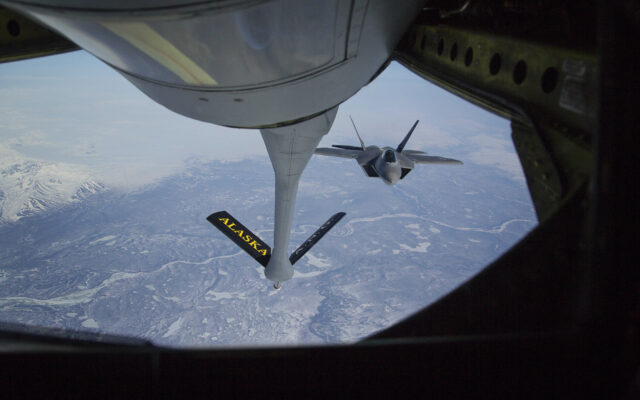Jail deaths highlight ongoing rural Alaska safety issues

By DAN JOLING
Associated Press
ANCHORAGE, Alaska (AP) – The deaths of three people in two weeks at western Alaska jails underscore a perennial problem that rural officials have attempted to address: a lack of public safety personnel and facilities in villages.
The Association of Village Council Presidents, a regional tribal consortium made up of 56 federally recognized tribes of the Yukon-Kuskokwim Delta, surveyed facilities last summer and found a lack of infrastructure.
Some village public safety buildings lack heat or plumbing. Fire codes do not require sprinkler systems and the state fire marshal’s office does not routinely inspect them.
Becca White, 24, and Isaiah Parka, 22, died April 28 in a fire that burned down the village jail in Napakiak, a community 15 miles (24 kilometers) southwest of Bethel. Two guards were seriously injured trying to save them. The state fire marshal and Alaska State Troopers are investigating the cause of the fire.
The state fire marshal’s office reviews building plans for rural jails, said State Fire Marshal Richard Boothby, and make sure they comply with the International Building Code. However, buildings with fewer than six cells fall into the same category as office buildings in Anchorage, he said.
There are no routine inspections by the fire marshal’s five inspectors. The code would not require sprinklers systems unless there were other considerations such as 500 or more occupants and multiple stories. Rural jails typically are part of public safety buildings that are 1,000 square feet (93 sq. meters) or fewer, Boothby said.
“With that said, we are in those buildings on and off because they’re public safety buildings,” Boothby said.
The AVCP assessment of the Napakiak jail showed a one-story, weathered wood building on pilings, which allow ground with permafrost to stay frozen and immobile. The 2018 assessment listed a window, door lock and exterior stairs in need of repair.
Robert Nick, 54, died Friday in a jail in Akiachak, a village of 600 about 18 miles (29 kilometers) northeast of Bethel.
A tribal officer took Nick into protective custody Friday because he was severely intoxicated and he died that night. An autopsy was ordered and Alaska State Troopers are reviewing the circumstances of Nick’s death. Calls to officers in Akiachak were not returned Monday and Tuesday.
The jail is operated by the Akiachak Native Community.
Unlike in Anchorage and other major Alaska cities, the state Department of Corrections does not oversee jails in villages.
People held by tribal or village police are not the state’s responsibility, said Megan Peters, spokeswoman for the Alaska State Troopers.
“If a local agency makes an arrest and houses the arrestee in a community jail, they are not wards of the state,” Peters said by email. “They do not become wards of the state unless they are transferred to one of the facilities that are operated by the state.”
As for oversight of rural jails, and the training of personnel who oversee detainees, and police officers hired by tribes or village governments, state officials take a mostly hands-off approach.
As of last summer, 88 percent of the communities within the Association of Village Council Presidents do not a village public safety officer trained at the state academy, said director of communications Azara Mohammadi.
Alaska State Troopers respond to state crimes but the response time varies depending on the severity of the circumstances, she said. Homicides or people with weapons draw a faster response – if weather permits troopers to fly.
Public safety has been identified as the No. 1 priority for the AVCP, Mohammadi said.
“We’ve been doing all this kind of work just so we can show and capture a baseline of what public safety looks like in western Alaska,” Mohammadi said.
Many of the villages, and the main hub community, Bethel, are encompassed by the Yukon Delta Wildlife Refuge, which covers more than 3,045 square miles (7886 sq. kilometers). The National Park Service describes it as vast, flat wetlands and tundra interspersed by countless ponds, lakes and meandering rivers.
None of the villages are on the state road system. People travel between villages by airplane or boat, or in the winter, by snowmobile.
State troopers in Bethel on Friday took a boat up the Kuskokwim River to reach Akiachak.
The villages don’t have a strong tax base that can support public safety.
“A lot of the economies out here are a mixture of the subsistence economy and the monetary economy,” Mohammadi said.
AP-WF-05-15-19 0607GMT
You Might Also Like



